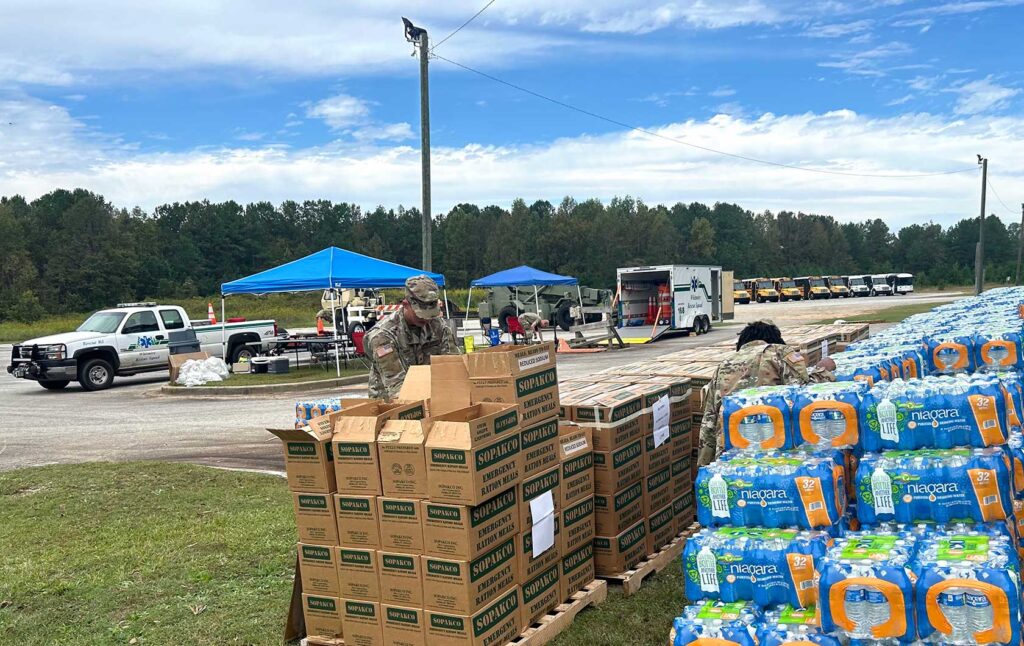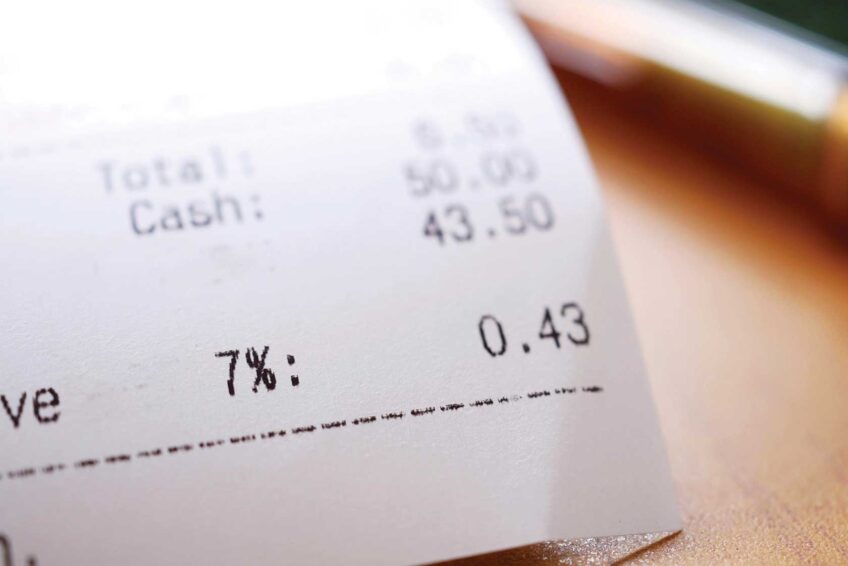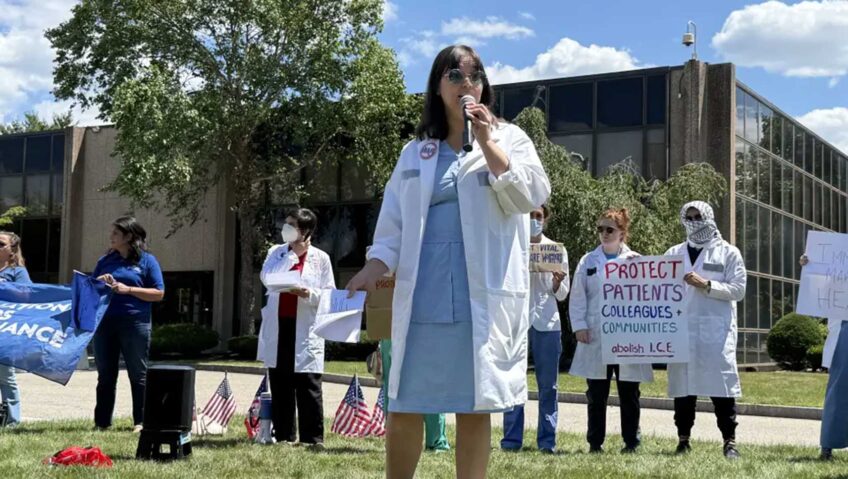Red Cross weighs in on aiding communities recovering from back-to-back hurricanes

Hurricane Helene touched down in Florida on Sept. 26 as a Category 4 storm that devastated communities across Florida, Georgia, South Carolina, North Carolina, Tennessee and Virginia. The National Environmental Satellite, Data and Information Service deemed it among the most powerful storms to hit the United States, with days of torrential rainfall and powerful winds.
Then came Hurricane Milton. With winds of up to 120 miles an hour, the Category 3 storm slammed into popular cities in Florida, such as Tampa and Orlando. An estimated 500,000 people lost power, and roads quickly flooded.
More than 200 people died as a result of Hurricane Helene, making it the deadliest hurricane to hit the country since Hurricane Katrina in 2005. Now, Florida is grappling with recovery from another catastrophic storm, Hurricane Milton, which made landfall on Oct. 9.
With homes washed away, persisting power outages and impassable roadways from consecutive hurricanes, organizations are racing to deploy help to those who were in the path of first Helene and then Milton.
“We know that people are generous and want to do everything they can to help after a disaster,” said Stephanie Fox, national media lead for the American Red Cross. “Our priority is to provide shelter and support to those affected. Financial donations are the quickest and best way to help those who need it most.”
More than 2,000 Red Cross volunteers have assembled to provide shelter, food, water and other support to families affected by Helene. The humanitarian organization has set up shelters in the Carolinas, Georgia, Tennessee and Florida, where residents can get hot meals and emotional support.
Emergency response vehicles have also been deployed to deliver meals, water and supplies to those in need. As the hurricanes led to the cancellation of blood drives across the Southeast, the Red Cross is working to restock blood products.
“Donations of clothing and household items divert resources away from our mission, whereas financial donations can be used right away to directly help those affected, such as replacing lost items like prescription medications or reading glasses,” said Fox.
Baltimore resident Deneen Penny-Rymes spoke with the AFRO about the dire situation experienced by her daughter, Dia Rymes, in late September following Helene. Dia Rymes, a teacher, lives in Hazlehurst, Georgia.
Deneen Penny-Rymes said she thinks her daughter concealed the gravity of the situation in the beginning to prevent her from worrying. Now, the severity has become clear.
“She sent me a text and said, ‘Mom, I’m going to send you my CashApp because I need help.’ She’s 48. She’s never asked me for help,” said Deneen Penny-Rymes. “I burst into tears because I knew she was in trouble. She never, ever asked for any help. When she said that, I figured it was bad.”
Fortunately, the main structure of her daughter’s home stayed intact. But, all of the windows have shattered, and the screens have blown out. Her house’s addition has been demolished, and her barn is sitting under the weight of a fallen tree.
With no power or water, Dia Rymes and her significant other began traveling to towns up to an hour away to obtain necessities. But that was only possible while gas was available, and with no access to debit or credit cards, money to purchase gas ran low. Banks were forced to shut down and many other forms of payment were thrown offline due to power outages. Deneen Penny-Rymes recently discovered that pool water was a saving grace for her daughter in the immediate days after the storm, as it was the only source of water to bathe and flush toilets.
As the need for relief in impacted communities continues, organizations have warned people to protect themselves from scams and disinformation. Fox cautioned that those seeking aid should avoid anyone who says they are a Red Cross volunteer and asks for money. The organization’s aid is always provided at no charge.
She also provided guidance for those looking to donate.
“Beware of visits, calls or emails from people claiming to offer financial assistance, asking for your social security number, bank account or other personally sensitive information. Giving out this type of information can lead to identity theft,” said Fox. “Research charities through Charity Navigator, Charity Watch Group, the Better Business Bureau and GuideStar before donating.”
This post appeared first on AFRO American Newspapers.






